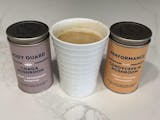Reishi and its Activity Against Diseases
- Cancer
- Immunodeficiency
- Oxidative Stress
- Viral Infections (herpes, HIV, hepatitis B)
- Bacterial Infections (including E.coli, Bacillus subtilis, Staphylococcus, Salmonella)
- Liver Disease
- Diabetes
- Kidney Disease (Nephritis, Renal ischemia, Proteinuria)
- Sleeping Disorders (Insomnia, Sleep apnea)
- Cardiovascular Disease (Hyperlipidemia, Atherosclerosis, Leukopenia)
The cardiovascular system (or circulatory system) consists of the heart and a closed system of vessels called arteries, veins, and capillaries. This system permits blood to circulate and transport nutrients such as amino acids, electrolytes, oxygen, carbon dioxide, hormones, and blood cells to and from the cells within the body. This amazing natural process provides nourishment and aid in fighting diseases, while stabilizing temperature, pH, and homeostasis. (1)
There are many health complications associated with the cardiovascular system, which makes cardiovascular disease one of the leading causes of death in the developing world today. For this reason, research in agents that promote aid in reducing the risks of heart failure is heavily ongoing. Scientific research has proven Reishi's ability to lower risk of heart disease.
Both in-vivo (test tube) and in-vivo (animal studies) were performed to monitor the effects of Reishi's hot-water extract against hyperlipidemia, a condition in which there are high levels of fat particles (lipids) in the blood. The study showed lowered plasma levels of total cholesterol, triacylglycerol, and LDL cholesterol and increased high-density lipoprotein (HDL) cholesterol. This essentially means lowering levels of harmful cholesterol while increasing beneficial cholesterol within the body, withstanding cardiovascular disease complications. (2)
HDL cholesterol helps remove the bad cholesterol from your bloodstream, which is the reason higher levels of HDL cholesterol are associated with a lower risk of heart disease. (3)
Another double-blind, randomized, human clinical trial of 170 patients was designed to evaluate the clinical effects and safety of extracted Reishi polysaccharides in patients with confirmed coronary heart disease. After 3 months of administration, the results suggest that Reishi polysaccharides showed "hypolipidemic, hypotensive, and antithrombotic effects.” It also reported a reduction in chest pain, palpitations and shortness of breath, with no known toxicity. (4)
Two separate studies showed positive correlation in Reishi's ability to inhibit Angiotensin-converting enzyme (ACE) activity, which helps relax your veins and arteries by lowering blood pressure. Regulating this enzyme is critical in regulating hypertension, or high blood pressure, back to a normal range. The studies suggest Reishi extract to have high potential in lowering blood pressure level due to the presence of several antihypertensive-related proteins. (5)(6)
Another study was done on Reishi and its correlation to atherosclerosis, which is caused by an overproduction of nitric oxide in macrophages. Atherosclerosis is the build-up of fats, cholesterol, and other substances in and on the artery walls. Due to the antioxidants found in Reishi, the study showed therapeutic activity against atherosclerosis by regulating the production of nitric oxide in macrophages. (7) It's important to note that having a balance of nitric oxide in macrophages helps in the activity against viruses, bacteria, fungi, protozoa, helminths, and tumor cells. (8) Macrophages are the specialized cells involved in the detection, phagocytosis and destruction of bacteria and other harmful organisms.
In addition, Reishi has shown to help lower elevated levels of triglycerides, ability to normalize blood sugar levels, increase the flexibility and health of blood vessels, and even remove atherosclerotic plaque. (6)
Click on other conditions to continue exploring studies done on Reishi:
References:
1. https://www.ncbi.nlm.nih.gov/books/NBK535419/
2. https://www.ncbi.nlm.nih.gov/pubmed/30806268
3. https://www.ncbi.nlm.nih.gov/pmc/articles/PMC5877920/
4. International Journal of Medicinal Mushrooms. DOI: 10.1615/IntJMedMushr.v6.i4.30
5. https://www.ncbi.nlm.nih.gov/pubmed/24093919
6. https://www.ncbi.nlm.nih.gov/pubmed/25178067
7. https://www.ncbi.nlm.nih.gov/pubmed/16335796
8. https://www.ncbi.nlm.nih.gov/pubmed/9143691

